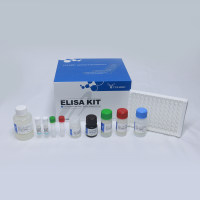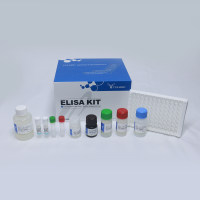Circumventing Tumor Resistance to Chemotherapy by Nanotechnology
互联网
互联网
相关产品推荐

促销中小鼠肿瘤坏死因子α(TNF-α)酶联免疫试剂盒Mouse Tumor necrosis factor α,TNF-α ELISA KIT
¥3420¥3800

促销中大鼠肿瘤坏死因子α(TNF-α)/Rat TNF-α/tumor necrosis factor (TNF superfamily,member 2)/Tnf;Tnfa;Tnfsf2;Tumor necrosis factor;Cachectin;TNF-alpha;Tumor necrosis factor ligand superfamily member 2;TNF-a) [Cleaved into: Tumor necrosis factor;membrane for/TNF/ELISA试剂盒
¥3420¥3800

Recombinant-Human-Epithelial-membrane-protein-1EMP1Epithelial membrane protein 1; EMP-1 Alternative name(s): CL-20 Protein B4B Tumor-associated membrane protein
¥10178

Recombinant-Human-Tripartite-motif-containing-protein-59TRIM59Tripartite motif-containing protein 59 Alternative name(s): RING finger protein 104 Tumor suppressor TSBF-1
¥12362

Recombinant-BNIP3-homologdct-1BNIP3 homolog; CbBNIP3 Alternative name(s): Daf-16/FOXO controlled germline tumor affecting
¥10738

